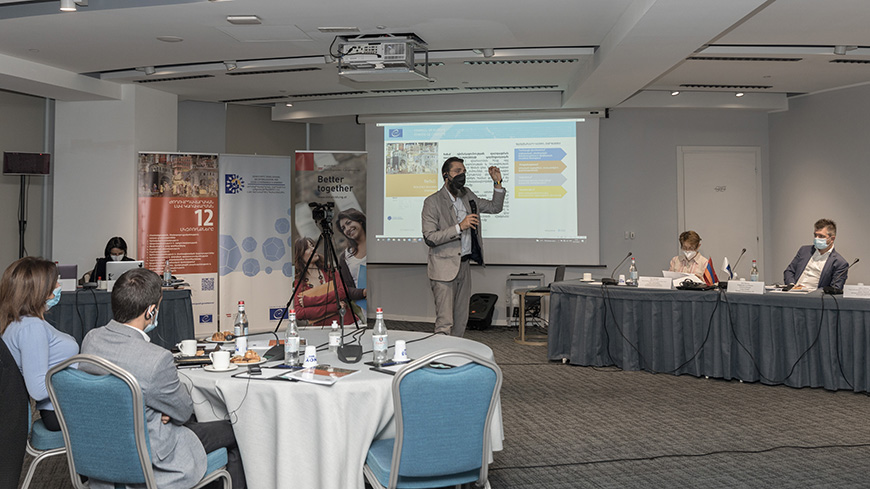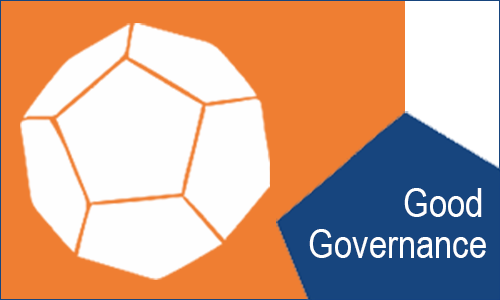The COVID-19 pandemic, environmental disasters, and conflict situations are among the daily challenges faced by public authorities across Europe recently. Representatives from 12 pilot Communities in Armenia will spend this week learning how to conduct an in-depth analysis of the preparedness and ability of their administration to respond to such emergency situations based on the methodology on the new Resilience Building Strategies (ReBuS) Toolkit of the Centre of Expertise for Good Governance (CEGG).
The ReBuS Toolkit has been developed by the CEGG to help public authorities build resilience by identifying the relevant actions needed to reduce risk and focus on recovery and functionality by strengthening overall levels of good democratic governance. The pilot communities in Armenia were selected to offer broad geographical spread and diverse disaster exposure so that contextualisation of ReBuS indicators reflects the situation throughout the country.
The workshops, organised in Yerevan, will guide participants through stakeholder mapping and assessment activities towards the establishment of a Community Resilience Taskforce. They will develop skills to assess resilience within their own community with a view to setting objectives and long-term goals to improve preparedness and ensure their Communities are better placed to recover and adapt in face of future crises.
These workshops have been organised under the “Democratic Development, Decentralsiation and Good Governance in Armenia” project, financed by the Austrian Development Agency and implemented in the context of the Council of Europe Action Plan for Armenia 2019-2022.






